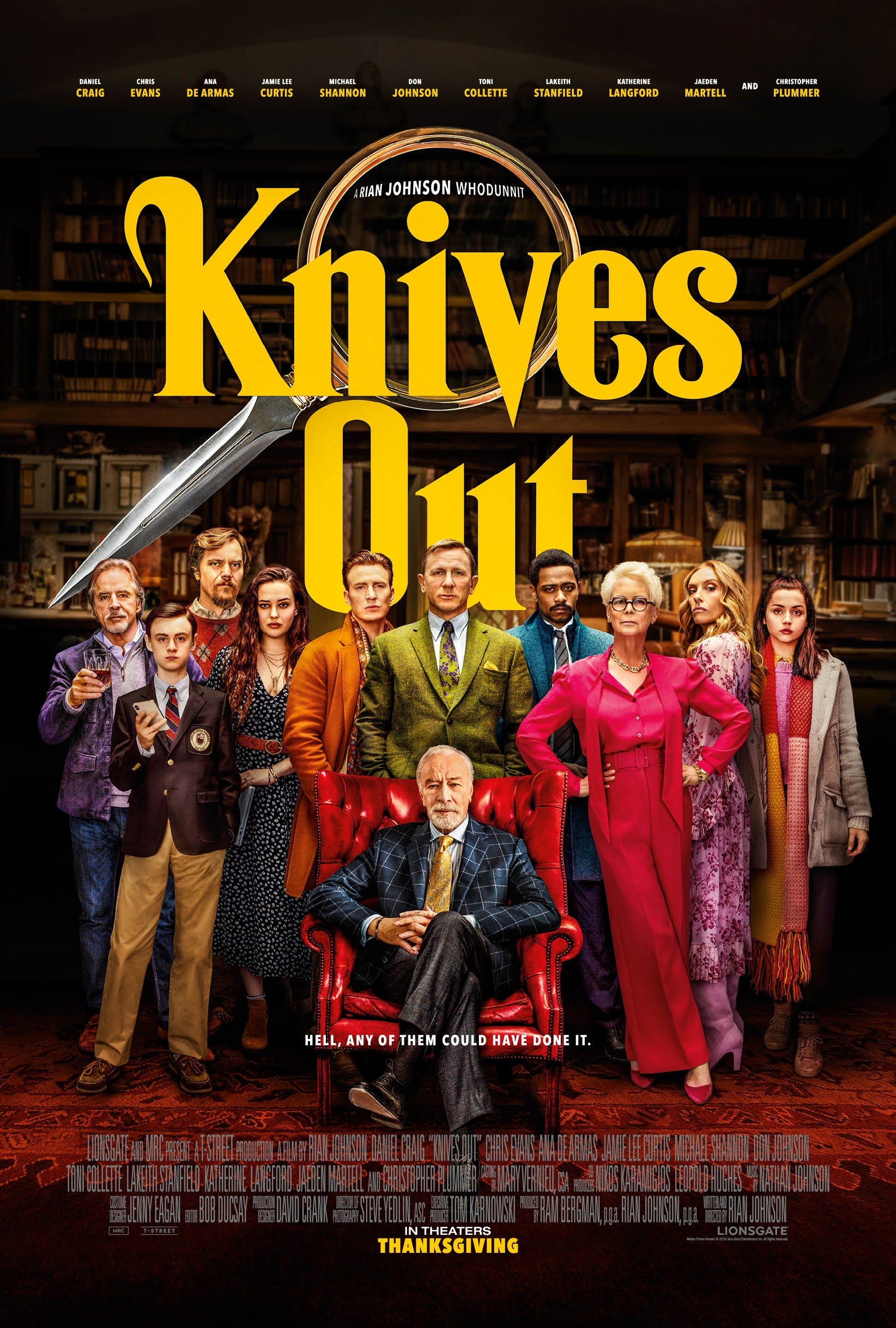
Ford vs. Ferrari is
one of the better sports films to be released in awhile. While the film took some time to get going, and one could adequately
determine the stereotypical personalities and situations involved, it did move
me towards the end. For me, the performance of Christian Bale as Ken Miles, the
odd man out, deserves commendation. The gravitas on display by Bale is fitting
for a film shrouded in polished corporate American values and historical
inaccuracies. Matt Damon is Bale’s foil as he plays the pioneer automobile
designer, Caroll Shelby. With these two outstanding performances the names of
the two pioneers will stick with you along with the thrill of motor car racing.
The Director, James Mangold, also got me
emotional with his previous bromance, the remake of 3:10 to Yuma, which also starred Bale. Similar to that film, the
situations or circumstances might be predictable in Ford vs. Ferrari but the unity between the two leads transcend this
and evoke a certain eerie, historical feel that these were real people. Capturing
the historical record with such entertainment value is commendable and again
showcases why moments in time, regardless of the period, are transcendent.
Notable historical inaccuracies are present and so I could not rate this film
as highly.
This film is based on the true story of the 1966 Le Mans
Grand Prix, a 24 hour endurance race, when automaker Ford ended Ferrari’s
dominance of the event and thereby showcasing American capabilities in international
motor car racing sport. The two individuals that made it happen were Caroll
Shelby (Matt Damon) and Ken Miles (Christian Bale). The two have to navigate a
web of corporate interests and subterfuge; making it apparent the interests of
greed at the heart of fierce competition and the sacrifices that are made by
honest working people to build something meaningful for the brand.
Positives
The primary positives are the performances by Christian Bale
and Matt Damon. As Ken Miles Bale plays the odd man out but the one with more
insight into the ways of the conformists represented by conservative corporate
interests. Also, as the odd man out he is able to transcend the demands of
corporate interests by breaking the stranglehold that tends to hold back
genuine progress. In so doing that individual is able to mould a new direction
for future generations by pushing the limits and making them aware of what is
possible. It is no wonder that the most dramatic moments involve this character
who was way ahead of his time in some respects, from an American perspective.
It is even more impressive as his character is based on a historical figure.
The current generation will be able to identify with such an individual who
pushes the envelope whether they are from 1966 or 2019. Matt Damon does well as
Carroll Shelvy who has to do the balancing act between conservative corporate
interests and the more eccentric individual Miles who is his friend. He watches
it all unfolds and acts as the narrator for the story.
Other perspectives include those of Miles’ wife, Mollie (Caitriona
Balfe), and doting son, Peter (Noah Jupe). The supporting cast which represents
corporate America also plays its part and it is no surprise that the so called
villain, Leo Beebe (Josh Lucas), is within the upper echelons of the Ford bureaucracy,
regardless of what the title of the film says. Beebe is not necessarily a villain
in the wider sense, although being portrayed as such, because, just like anyone
else he is motivated by the self-interest of his company. If he was truly this
vindictive then it makes the movie even sadder by the end.
Another positive of this film is the detailed breakdown of
the moments leading to the famous 1966 race at Le Mans. The structure of the rivalry
is detailed first as a corporate struggle between Ford and Ferrari followed by
the professionals who got it done on the ground. The owners of the two
companies, Henry Ford II and Enzo Ferrari, are finely portrayed. Ford as a man
trying to continue his father’s legacy and Ferrari trying to maintain his own. Ferrari
is obviously more intimate with the motor car racing scene than the more sheltered
Ford Jr and this is all portrayed throughout the film very well. It even
becomes apparent in the final race. In the end they are the ultimate winners or
losers because they represent the brand.
The last major positive is obviously the motor racing
itself. I am pretty sure that Generation Z would not be disappointed by the
motor racing on display in this film. Cars hitting just over 200 mph may not
seem major now but in 1966 that was considered very fast. The direction of
these races by Mangold captures the adrenaline rush of the sport and why it is
a highly valued one with a long lived history. You do get really immersed in
the races and the mindset (strategies) of the speed demons on the track and
their support system in the pits. More speed but with greater control. This all
suggests that the historical forces and methods of the sport have been in place
for a very long time although cars have gotten faster etc. Can you imagine Ken
Miles having a go with some of these modern cars? The cars of today are
probably what he and Shelby had in mind all along. Probably.
Negatives
The primary negative is the biased portrayal of corporate
America. Obviously, the historical record already records them as the victors
at Le Mans but the film does do its part in having them portrayed as pushing
American interests and values while portraying Ferrari as their bitter enemy
that must be defeated. Yes, some are sacrificed along the way, and there is significant
enmity within Ford itself, but in the end Ford is the victor. I found Enzo Ferrari
more relatable than Henry Ford II because he lived it. He was a true sports man
but his attitude to the sport is not effectively captured except in sound bites
and gesticulation. In the end Ford may have won a couple races at Le Mans but
if you check the records Ferrari still has more wins than Ford overall. It is
true that Ford is the only American car company to record victories at the
event but there is probably a reason why they have not won since the 60s. Instead
of portraying it as a bitter corporate struggle we could have gotten a more
balanced or well rounded film that could still assert the end of Ferrari’s
dominance. A more genuine sports film. Instead we have a couple scenes where
Henry Ford II speaks about the greatness of his company but Ferrari must have
been great as well, so what about the values of his company. What I see is Ford
rising to Ferrari’s standards yet Ferrari is seen as the ultimate loser. I do
admit that the 1966 race was special in itself but instead of emphasizing American
participation only let us also emphasize that Ford are also the overall losers
particularly as they haven’t really made much headway in the event since the
1960s.
The film does emphasize how the small man is sacrificed on
the corporate altar but can we really be disappointed at the end. In the end
Ford won in 1966 as history says. Yes, there was some subterfuge but ultimately
Ford won. In some sense the added dramatic effect can shroud the overall
outcome which is implied in the title. This does mean that although there is a
stereotypical villain the emphasis on Shelby and Miles sort of obscures the
overall objective of Ford to win the race. So the portrayal of internal enmity
is unfortunate because in the end it doesn’t really matter which driver wins. I
understand that as a sports film it does matter but not as implied in the
title. So, if it is Ford vs. Ferrari why focus only on Miles and Shelby and not
give a more accurate representation of the other interests of Ford in motor
racing. The other Ford racing cars were not discussed effectively as part of the
overall objective except at the end of one race.
I mention this because I am sports history enthusiast and so
more care needs to be demonstrated when promoting American interests in the
film. If you look at the list of winners
at Le Mans since its inception you will realize that there are notable
inaccuracies in the film. For instance, Shelby is credited in the film as the
only American to win the event before the 1966 race and that is not the case. The
Italian born American, Luigi Chinneti, was the first in 1949 and he drove a
Ferrari. LOL. The next American to win the event was American born, Phil Hill
in 1958, and he drove, YES, A FERRARI. LOL. Phil Hill also won driving a
Ferrari in 1961 and 1962. It makes you wonder why Ford did not turn to their
fellow American lol. In 1965 a North American team won the event before Shelby
got involved. The North American team won driving a Ferrari and had 2 American
drivers on their roster. The North American Racing team was owned by Ferrari to
promote their interests in America. Also,
in the list of winners Shelby American Inc is credited as the American team
behind the victories at Le Mans in 1966
and 1967, so why all the drama surrounding this race. Ford was the sponsor but
the Shelby teams were involved with the creation of the GT40 engine for the
other cars that participated in 1966. Why wasn’t this highlighted in the film?
That is really unfortunate. Shelby’s team is listed on record as the ones
behind Ford’s 1-2-3 triumph. Shelby was not just approached by Ford because he
won at Le Mans as a driver but because he actually entered the 1964 Le Mans
event with the Shelby Daytona Cobra Coupe which placed 4th. Ford was
actually trying to beat Ferrari long before 1966 but Ferrari was just very good
at what it did. Credit to Shelby for having an all American team ending their
dominance. It makes you wonder who the real villain is.
This is still one of the best sports films I have ever
watched. The character of Ken Miles is the only one to emerge unscathed from my
criticism. I wanted to love this film
more but too many major inaccuracies.





/cdn.vox-cdn.com/uploads/chorus_image/image/64140281/spider_man_far_from_home_DF_28400_rv2.0.jpg)


